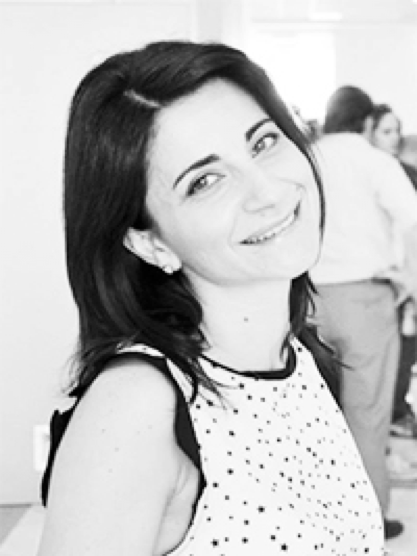Laura Pedata

XXX Cycle - (A.A. 2014-2015)
IDAUP
Home Institution: Polis University Tirana
Scholarship
Curriculum: Architecture (ICAR/15)
Research Topic: Urban Residual Landscapes
Tutor DA-UNIFE: Roberto Di Giulio
Tutor Polis University: Besnik Aliaj
Nationality: Italian
Email: laura_pedata@universitetipolis.edu.al
Profile
Biography
Laura Pedata is an Architect, a Landscape Architect and researcher, her main interest lies in observation, analysis and representation of urban landscape conditions and environmental regeneration strategies. Her most recent design research initiatives are focused on residual landscapes in transitioning cities. Currently Laura is lecturer in Landscape Architecture and Environmental Design at POLIS University in Tirana (AL). She also works ad bioclimatic and landscape design consultant. Laura holds a Master in Architecture from “La Sapienza” University, Rome, and a Masters of Architecture II degree (M.Arch.II) from UCLA. She was awarded a Fulbright Scholarship in 2007. Laura is a Licensed Architect since 2007 and was co-principal of the architecture office ungroup until 2011. From 2009 to 2011 she was an Adjunct Professor in Landscape Architecture and Architecture at University of Rome “La Sapienza” in Rome, and from 2012 to 2013 she was employed by SOM in San Francisco as Architectural Professional – D Level.
Research skills
Landscape architecture theory | Participatory Design | Urban Resilience | Public spaces | Sustainable design
Scientific activities
ORCID ID:
0000-0002-8742-0096
IRIS UNIFE ID:
rp00000
Doctoral research
UNINTENDED LANDSCAPES. Reevaluating the Potential of Residual Landscapes in Tirana’s Future Urban Development Strategies
The research is centered on observation, analysis and representation of landscape conditions, processes over time and change, particularly in transitioning countries where cities are subject to fast urban growth and the proliferation of residual spaces, which result in antagonistic and confused landscapes, landscapes of mutation and crisis. Although residual spaces are a result of the rational organization of the urban territory, they have become the opposite of the organized world. Analyzing these landscapes at the micro scale we can learn from the natural order that shapes them and from the way the urbanized territory influences their existence; whilst at the macro scale they appear as scale less fragments, interruptions of the urban fabric that reveal a new urban geography. Their temporary suspension and availability to transformation – but also their unstable, dynamic, heterogeneous and chaotic character - generates an opportunity for designers to reframe the urban design discourse, acknowledging the value of indeterminacy and open-endedness. By observing residual space spontaneous occupation strategies, considering the potential of people’s informal approaches to their management, and the possible influence on the urban ecosystem, the research hypothesizes a future open-ended operational mode of urban development. Residual spaces have the potential to become test sites for experimenting new urban landscape management strategies aimed at guaranteeing people’s comfort and health, responding to social needs, and contributing to the restoration of degraded urban ecosystems and the preservation of the environment.
Keywords
Tiers Paysage | Terrain Vague | Urban wilderness | Ruderal landscapes | Urban voids

